Key enterprises plug circular economy shift
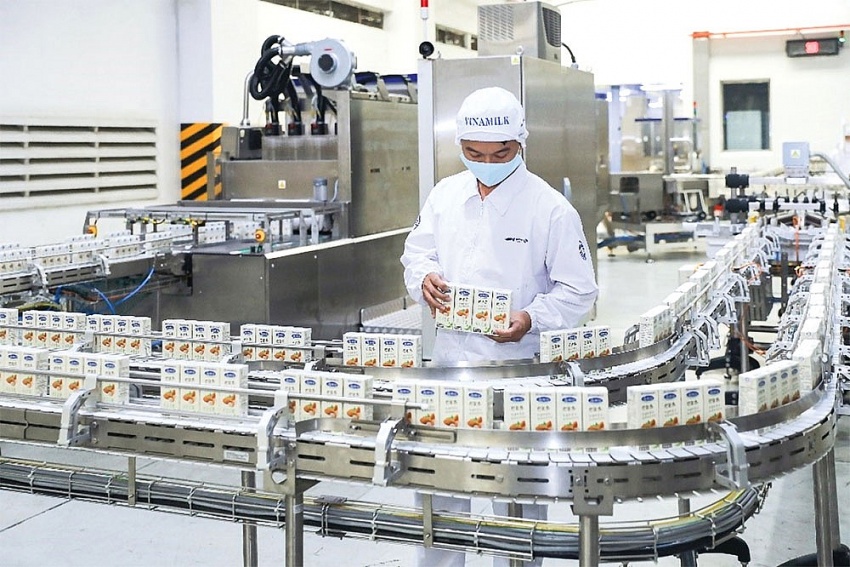 |
| Companies in areas from beverages and electronics to finance are considering greener processes, Photo: Le Toan |
In a seminar held in Ho Chi Minh City last week on the net-zero goals and the participation of businesses, Nguyen Quang Vinh, deputy chairman of the Vietnam Chamber of Commerce and Industry and chairman of the Vietnam Business Council for Sustainable Development, drew attention to emerging global trends.
“There is a shift in mindset, value chain transformation, enhanced corporate accountability, and the promotion of digital transformation to support the green transition. We urge the Vietnamese business community to pay attention to these trends to keep pace with the international green trend,” Vinh said.
Prof. Nguyen Cong Thanh, head of the Department of Economics and Resource and Environmental Management at the National Economics University, believed that there is a close link between the implementation of the circular economy and carbon neutrality and sustainable development goals.
“While 54 countries worldwide have developed strategies or national action plans to implement the circular economy, Vietnam has made strides by incorporating aspects of the circular economy, such as waste sorting at source, extended producer responsibility, green credit, and green bonds into law. Nevertheless, there remains significant potential for further advancement in this area,” Thanh explained.
He further highlighted the crucial role of design, technology, and digitalisation in the material flow cycle and extending product life to successfully transition to a circular economy model.
The seminar also featured speakers from various sectors who shared their experiences and practical recommendations to promote the circular economy model and climate change response actions.
As a testament to the viability of the circular economy in Vietnam, Nestlé Vietnam stands as an example, having achieved “zero waste to landfill” across all its factories since 2015 and effectively utilising waste from production as green energy or raw materials for other products.
Khuat Quang Hung, director of Corporate Affairs at Nestlé Vietnam, said, “Many circular economy model initiatives have been applied to use resources effectively. Our water treatment system has helped us reuse 60-65 per cent of total wastewater. Waste from production is all utilised to become green energy or raw materials for other products.”
The company’s Nescafé Plan, which promotes regenerative agricultural practices among coffee farmers, aims to ensure that by 2025, all coffee beans supplied to Nestlé are responsibly grown, contributing to reducing greenhouse gas emissions and enhancing community welfare.
Elsewhere, Nguyen Thi Ngoc Hue, director of Communications and External Relations under AEON Vietnam, emphasised that understanding the importance of the circular economy will help businesses position and build their business development strategy towards sustainable development.
“AEON Vietnam is committed to engaging with consumers and facilitating their understanding of environmental protection,” Hue said.
In the same vein, Pham Thi Bich Lien, head of Marketing Operations and Sustainability at Home Credit, also acknowledged the pivotal role of green consumer finance in fostering a sustainable economy.
“We have been a trailblazer in the application of environmental, social, and governance standards, aligning operations with the Vietnamese government’s green growth strategy,” Lien said. “Home Credit has strategically partnered with manufacturers and retailers to enhance instalment loan packages for eco-friendly products, including Vinfast electric motorcycles and bicycles. This initiative is designed to incentivise customers to transition from conventional products to those that are more environmentally friendly.”
Mach Dinh Khoa, international director of Digital and Automation at Schneider Electric, stressed the importance of a balanced approach in promoting a circular economy. “Just as with Vietnam’s helmet law enforcement in 2008, both incentives and penalties are crucial in promoting a circular economy,” Khoa said.
What is more, Nguyen Trung Anh, deputy CEO of The PAN Group, suggested that local businesses that effectively implement a circular economy should be rewarded with tax incentives and other benefits.
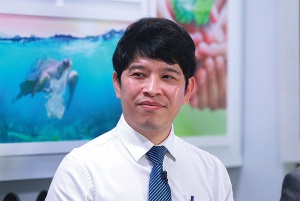 | Extra support required for circular economy development in Vietnam The implementation of sound ecological practices is more needed than ever. Assoc. Prof. Nguyen Dinh Tho, general director of the Institute of Strategy and Policy on Natural Resources and Environment, discussed with VIR’s Hoang Oanh about Vietnam’s commitment to promoting the circular economy and policies to encourage businesses. |
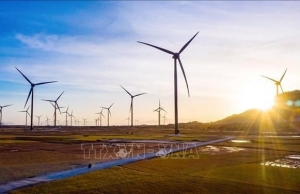 | Vietnam suggested to join European Circular Economy Stakeholder Platform Vietnam can take part in the European Circular Economy Stakeholder Platform (ECESP) to make use of Europe’s initiatives and experience in this regard, according to ECESP Vice President Cillian Lohan. |
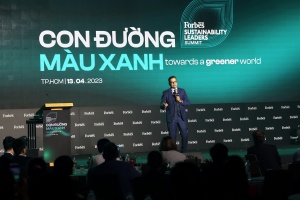 | Nestlé Vietnam promotes the circular economy model On April 13, the 2023 Sustainable Development Conference brought together experts and representatives of industry leaders in Vietnam. These included Binu Jacob, general director of Nestlé Vietnam, who shared his belief that environmental pollution and resource depletion are disrupting the natural regeneration cycle and causing climate change. |
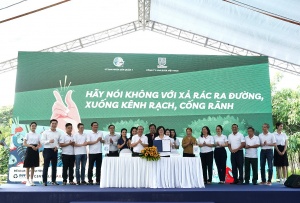 | Unilever Vietnam brings circular economy to life Unilever Vietnam and the People’s Committee of District 7 in Ho Chi Minh City have recently partnered to promote plastic waste segregation at home among the local community for better collection and recycling. |
What the stars mean:
★ Poor ★ ★ Promising ★★★ Good ★★★★ Very good ★★★★★ Exceptional
Related Contents
Latest News
More News
- Vietnam ready to increase purchases of US goods (February 04, 2026 | 15:55)
- Steel industry faces challenges in 2026 (February 03, 2026 | 17:20)
- State corporations poised to drive 2026 growth (February 03, 2026 | 13:58)
- Why high-tech talent will define Vietnam’s growth (February 02, 2026 | 10:47)
- FMCG resilience amid varying storms (February 02, 2026 | 10:00)
- Customs reforms strengthen business confidence, support trade growth (February 01, 2026 | 08:20)
- Vietnam and US to launch sixth trade negotiation round (January 30, 2026 | 15:19)
- Digital publishing emerges as key growth driver in Vietnam (January 30, 2026 | 10:59)
- EVN signs key contract for Tri An hydropower expansion (January 30, 2026 | 10:57)
- Vietnam to lead trade growth in ASEAN (January 29, 2026 | 15:08)

 Tag:
Tag:

















 Mobile Version
Mobile Version